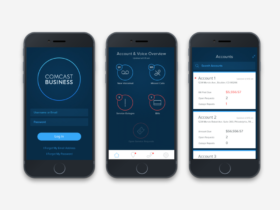With rising house prices in Brighton pricing many first-time buyers out of the market, shared ownership has emerged as an increasingly popular middle ground option between renting and full homeownership interior design
But does part renting and part buying a home make financial sense for prospective homeowners in Brighton? This detailed guide examines the pros, cons, costs and considerations of part rent, part buy in Brighton to help you decide.
What is Shared Ownership?
Shared ownership involves buying between 25-75% of a property with a mortgage and paying subsidised rent to a housing association on the share you don’t initially own.
The rent is set at roughly 2-3% of the market value of the unsold share. You can choose to “staircase” and buy more shares over time until you own 100%, but outright ownership is not guaranteed.
To qualify for shared ownership, households must be unable to afford suitable housing at market prices, with income thresholds of £90,000 outside London. The aim is helping more people onto the property ladder.
The main pros of shared ownership include:
- Lower deposit usually around 5-10% of the share value
- Smaller mortgage required – only funding part purchase
- Ability to buy more shares and staircase towards full ownership
- Access to quality new-build homes and potentially more space
While limitations include:
- Never fully owning 100% of the property unless you staircase to max
- Restrictions on changes and renovations requiring landlord permission
- Smaller pool of buyers when reselling shares
- Rent increases annually with inflation, pushing up costs
So in summary, shared ownership blends aspects of renting and buying with compromise on both sides. Evaluating the costs and benefits is key.
The Costs of Shared Ownership Brighton
While designed to be affordable, shared ownership still carries significant costs. What are the typical expenses involved with shared ownership properties in Brighton?
Deposit
For the initial share purchase, you’ll need a deposit of around 10% of the share value. If buying a 25% share worth £100,000, your deposit would be £10,000 for example.
Mortgage
You’ll need a mortgage to cover the cost of the share purchased minus the deposit amount. Interest rates are similar to standard mortgages.
Buying a 25% £100k share with a £10k deposit would require a £90k mortgage.
Rent
Rent is charged by the housing association on the share you don’t own. This is typically around 2.5-3% of the unsold equity’s full market value.
If you owned 25% of a £400,000 property, annual rent on the £300,000 unsold share would be approx. £7,500 or £625 monthly. Rent rises annually.
Other Costs
Ongoing fees include buildings insurance, service charges, ground rent and maintenance sinking funds. Budget around £150-£300 monthly for these extras.
Factoring in all costs upfront is vital when assessing if shared ownership is affordable. It still carries significant financial commitment.
Pros of Shared Ownership in Brighton
Despite its limitations, shared ownership offers clear benefits for certain buyers in Brighton:
-
Lower Deposit Requirements
Saving a sizable mortgage deposit is the biggest barrier to homeownership for most first-time buyers. Shared ownership deposits can be as low as £5,000-£10,000.
This increased affordability helps buyers stuck between unaffordable house prices and endless renting. Lower deposits open doors.
You also build equity through gradual share purchases unlike renting where you gain no assets.
-
Smaller Mortgage Needed
Your mortgage only needs to cover the portion of the property you purchase. This results in cheaper monthly repayments.
For a £400k home buying a 25% share, the mortgage may be around £90k after a £10k deposit. This would cost approx. £360 monthly over 25 years at 3% interest.
Much less than buying the whole £400k house outright with a £40k deposit needing a £360k mortgage and £1,430 in monthly payments.
-
Ability to Increase Ownership
A key advantage over renting is the ability to staircase and buy more shares to grow your ownership stake over time.
How quickly you can scale depends on affordability. But gradually increasing from 25% to 75% ownership is achievable for many over a 5-10 year timeframe. Renting doesn’t offer this.
-
Access to Quality New Builds
Due to lower deposit requirements, shared ownership provides access to higher quality new-build homes than many could otherwise afford to buy.
Most new schemes in Brighton are built to high standards by housing associations. Shared ownership allows buyers to purchase shares in far nicer properties than on the open market.
-
Added Housing Security
While not outright ownership, shared ownership provides more security than renting long-term. You own part of the property and gain stability.
Making part mortgage payments also lets you build equity in the property over time unlike renting.
For buyers wanting stability without the full commitment of buying independently, shared ownership bridges the gap.
Cons of Shared Ownership in Brighton
However, there are also clear downsides and limitations to consider:
-
You Don’t Fully Own the Property
Even after maxing out your ownership share, you still won’t ever fully own 100% of the home. The housing association retains some control and a share of the property.
For buyers prioritising the status and freedom of total ownership, this can deter choosing shared routes. Some prefer renting and saving towards buying fully.
-
Restrictions on Improvements
Your ability to renovate and customise the home is restricted compared to normal homeowners. Most major modifications require housing association approval beforehand.
Internal changes, extensions, conversions etc. may be subject to permission, additional costs or refused. Your options for personalisation are limited.
-
Resales Can Be Slow and Difficult
Selling shared ownership properties later down the line poses challenges compared to normal resales. The pool of buyers is limited to those interested in your specific share size.
If staircasing, buyers also need to afford to purchase your increased share. This shrinks potential demand and can mean slower sales.
-
Rent Increases Annually
A key cost factor is your rent increasing every year linked to inflation. In 2022 rents rose almost 11% – that’s over £100 more per month.
These steady rent hikes will continue driving up housing costs unlike normal fixed rate mortgages. It’s important to budget for rises.
-
Extra Fees on Top
In addition to your mortgage and rent you’ll need to pay for buildings insurance, maintenance fees, service charges etc.
These extras add around £100-£300 to monthly costs. While mostly affordable, they still push up overall housing spend.
Who Is Shared Ownership Suitable For?
While not ideal for all buyers, certain groups are well suited to shared ownership:
First-time buyers – The lower deposit requirements make homeownership attainable for more first-timers unable to buy outright.
Key workers – Nurses, police, teachers and other key staff often can’t afford to buy homes in the areas they serve. Shared ownership facilitates this.
Young professionals – For young professionals able to afford mortgage-like costs but not an entire mortgage, shared ownership bridges the gap.
Growing families – The ability to buy shares in larger family-sized homes provides much needed affordability.
Private renters – For long-term renters wanting more stability and ownership, shared routes offer a path towards buying.
Meanwhile, home movers looking to customise their property substantially or sell again within 5 years may be better served by traditional ownership or renting.
Shared Ownership Schemes in Brighton
Several housing associations offer shared ownership schemes in Brighton & Hove:
- Hyde Housing – Developments across Brighton and Hove. Priority for local first-time buyers.
- Clarion Housing – Numerous schemes in Moulsecoomb, Bevendean, Whitehawk and beyond.
- A2Dominion – Shared ownership homes in Portslade, Rottingdean and Woodingdean.
- Southern Housing – Properties available in desirable areas like Kemptown and Saltdean.
- Housing Partners – Priority given to existing tenants but open to most meeting eligibility criteria.
New shared ownership homes are regularly being built across Brighton and Hove. Checking association websites will give an updated view of available schemes in different areas.
Waiting lists exist for most new developments, so applying early is key. Resales of existing shared ownership homes also periodically arise when owners staircase or move on.
Key Considerations for Shared Ownership
If considering shared ownership, keep these factors in mind:
- Check eligibility – income thresholds exist and you’ll need to demonstrate inability to buy suitable housing independently.
- Research all available scheme options – location, property types, housing associations etc.
- Budget accurately – factor in deposit, mortgage, rising rents, fees etc. Account for total costs.
- Inspect potential properties thoroughly – check build quality, storage, parking etc before purchasing shares.
- Understand the lease terms – know the rules for staircasing, improvements, possession, resales etc. Seek legal advice.
- Think long-term – consider future plans and financial room to staircase more or sell up within 5-10 years.
- Compare alternatives like help-to-buy – determine if other affordable ownership schemes may suit your needs better.
Doing your due diligence is key to deciding if shared ownership is the right route forwards. While not perfect, it does open doors for many unable to buy independently.
Final Thoughts
For prospective homeowners unable to purchase on the open market, shared ownership offers a middle ground between renting and full ownership. While you gain many benefits of owning a home, limitations like rising rents and needing landlord permission for renovations remain.
Weighing up the pros and cons carefully based on your situation is essential before committing. Shared ownership requires some compromise. But for many priced out of buying their own home, it provides an invaluable foothold onto the property ladder and path to greater ownership.
As house prices continue rising faster than incomes in Brighton, shared schemes will have an important role expanding affordable access to home ownership for more people. While not an easy quick-fix, with long term financial planning shared ownership offers a gradual stepping stone to full ownership.












Leave a Reply